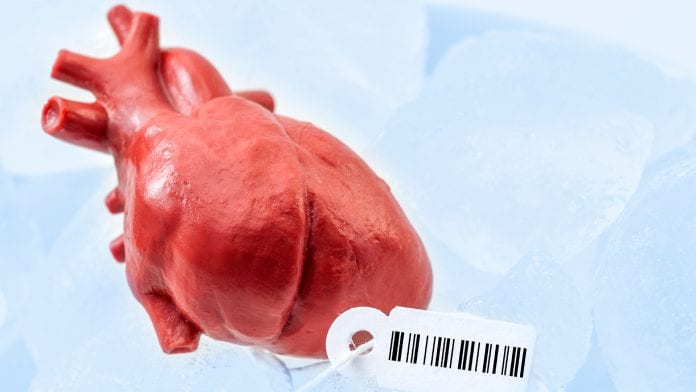
Health Europa Quarterly investigates the horrific practice of forced organ harvesting in Chinese prisons
In 2019, HEQ was contacted by representatives for survivors of the persecution, torture and forced organ harvesting of Falun Gong practitioners in China, hoping to raise awareness of their situation. Practitioners of Falun Gong, a Chinese spiritualist practice which consists of a combination of meditation and Qigong exercise, have been persecuted in China since 1999. The Chinese Communist Party have arrested countless members of the practice.
Many practitioners have reported that, while they were in China’s extensive network of detention centres and forced labour camps, they were tortured. Evidence indicates that Falun Gong practitioners, Uyghur Muslims, Tibetans and other prisoners have been further subject to forced live organ harvesting. Due to the lack of voluntary organ donors within the country, China has taken extreme measures in order to provide transplants for its nationals and ‘organ tourists’.
These ‘organ tourists’ travel from all over the world to buy an organ from a non-consenting prisoner for a minimum of around £5,000 (€5,857). Falun Gong practitioners who were imprisoned in China’s detention centres and labour camps report undergoing unexplained medical examinations and blood tests as a precursor to live organ harvesting; while doctors who were involved in the practice report of basements filled with live prisoners whose organs were extracted on demand.
The China Tribunal
In June 2019 the China Tribunal, an independent judicial investigation into forced organ transplantation in China released its final judgement. The Tribunal’s conclusion, based on an extensive array of evidence and testimony provided by more than 50 witnesses, found that crimes against humanity had been committed against China’s Uyghur Muslim and Falun Gong populations.
Sir Geoffrey Nice QC, who chaired the Tribunal, emphasised that the only reason his ruling did not explicitly determine that genocide had been committed was that the Tribunal had been unable to prove beyond reasonable doubt the ‘very specific intent’ to exterminate Falun Gong and Uyghurs.
The Tribunal’s final judgement stated: ‘Forced organ harvesting has been committed for years throughout China on a significant scale and that Falun Gong practitioners have been one – and probably the main – source of organ supply. The concerted persecution and medical testing of the Uyghurs is more recent, and it may be that evidence of forced organ harvesting of this group may emerge in due course.
The Tribunal has had no evidence that the significant infrastructure associated with China’s transplantation industry has been dismantled and absent a satisfactory explanation as to the source of readily available organs concludes that forced organ harvesting continues till today.’
The Human Rights Council
Counsel to the China Tribunal Hamid Sabi presented the Tribunal’s findings to the United Nations (UN) Human Rights Council, saying: “Commission of crimes against humanity against Falun Gong and Uyghurs [has] been proved beyond reasonable doubt. Victim for victim and death for death, cutting out the hearts and other organs from living, blameless, harmless, peaceable people constitutes one of the worst mass atrocities of this century.
Organ transplantation to save life is a scientific and social triumph – but killing the donor is criminal. Government and international bodies must do their duty not only in regard to the possible charge of genocide but also in regard to crimes against humanity, which the Tribunal does not consider to be less heinous. It is the legal obligation of UN Member States and the duty of this council to address this criminal conduct.”
Survivors and doctors speak out
HEQ spoke to two Falun Gong survivors of China’s prisons and labour camps, both of whom reported horrifying treatment. We also interviewed bioethicist Professor Wendy Rogers and Professor Jacob Lavee, co-founder of Doctors Against Forced Organ Harvesting, who gave us an insight into the medical and ethical implications of forced organ transplantation.
Lavee was instrumental in the implementation of Israel’s pioneering law forbidding Israeli citizens from receiving forcibly harvested organs, and Rogers has published research which has led to the retraction of several academic papers which relied on the use of unethically sourced organs.
The China Tribunal’s final judgement concluded: ‘Governments and any who interact in any substantial way with the [People’s Republic of China]… should now recognise that they are, to the extent revealed above, interacting with a criminal state.’ Since the judgement was handed down, very little has changed. More than a million practitioners of Falun Gong are believed to have been killed in China’s notorious gulag system, and a further million ethnic Kazakhs and Uyghur Muslims are now imprisoned in labour camps.
Governments and corporations worldwide continue to conduct business with China. The survivors and academics we interviewed were clear that appalling human rights violations have been committed over the course of several years; and that these abuses continue to this day.
Please note, this article will appear in issue 12 of Health Europa Quarterly, which will be available to read in February 2020.


























This forced organ harvesting is an absolute HORROR!! Equal to HITLER and his Evil doings . When is our modern world going to wake up and do something about it??
Why isn’t the United Nations screaming about this?
I agree. This is Evil personified.. In this day of calling evil Good and Good Evil one would think this Evil is so horrible that there would no confusion about it’s being grossly evil…